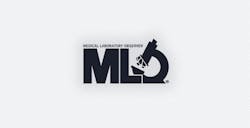When the Centers for Medicare and Medicaid Services (CMS) issued the 2011 Medicare Physician Fee Schedule (PFS) Proposed Rule earlier this summer, two proposed rules caught my attention. The first establishes a disclosure requirement on physician self-referral for imaging services, and the second aims to clarify and simplify the rule requiring requisitions for clinical laboratory tests to include a physician or qualified non-physician signature. Both could have an impact on the field of laboratory medicine and pathology, so the American Society for Clinical Pathology (ASCP) has submitted comments on those rules in the hope that these important issues will be addressed.
In the 2011 PFS, CMS takes steps toward limiting physician self-referral of imaging services. This is a step in the right direction, but the new rules should be expanded to include other services covered by the anti-markup rule and the Stark Law’s In-Office Ancillary Services Exception, such as anatomic pathology.
CMS revised the anti-markup rule in 2007 in an effort to deter abusive billing of pathology services. It left a loophole, however, that encouraged the relocation of physician-owned labs, or “pod labs”, into the physician’s office. The original intent of the exception was to allow for ancillary services, such as simple lab tests, to be performed in the office as a convenience for patients. Physician group practices, however, have used in-office labs to profit on the anatomical-pathology services they order.
Problems with in-office labs are wide-ranging, with the two main issues being 1) lack of a requirement for pathologist oversight and 2) the inevitable overutilization associated with financial interest.
There is no legal requirement for the technical component (the highly complex process of preparing the tissue specimen) to be supervised by a pathologist. Many doctors are setting up labs where complex tissue biopsies for conditions such as cancer are being performed. These biopsies are procedures that require tissue specimens to be processed by teams of highly trained professionals under the medical direction of a pathologist and analyzed by an expert in an accredited laboratory. Currently, the Medicare anti-markup rule only requires that the supervision be provided by a physician — any physician — who is part of the billing practice. Technically, a urology group practice could use any of its urologists, regardless of whether those physicians had any training in pathology or histology, to “supervise” the technical component of a biopsy performed in that office.
To hold the laboratory responsible for the physician’s non-compliance seems almost Kafkaesque.
Studies have shown that in cases where healthcare providers have a financial interest in their referrals, increased utilization of services and higher program costs result. A 2007 investigation into anatomic-pathology-related self-referral by the Department of Health and Human Services Office of the Inspector General revealed an alarming increase in the utilization of anatomic-pathology services once a physician group practice was able to capture pathology-related revenues. In the year after three urology practices entered into arrangements allowing them to profit from their referrals, their utilization of pathology services increased 699%, 230%, and 26%, respectively.
ASCP has taken up the cause of stopping pod labs in the past and will continue fighting pod labs in whatever form they take to prevent abusive billing practices, and to protect the pathology profession and clinicians, and most importantly, patients.
Another proposed rule to be aware of is the requirement for physician or qualified non-physician signatures on requisitions for lab tests reimbursed under the clinical laboratory fee schedule. While CMS has good intentions — namely to clarify and simplify the current signature requirement — this rule change may add further confusion about the need for a signature, and create a complicated and burdensome administrative process, with significant duplication of effort — not to mention that it does not appear to be in patients’ best interests.
What if the ordering physician fails to sign the requisition? The physician is penalized, right? Wrong! Under the proposed rule, the lab could be denied payment when the physician neglects to sign the requisition. With no consequences to the physician for failing to fulfill the CMS requirement, there is no incentive for compliance. To hold the laboratory responsible for the physician’s non-compliance seems almost Kafkaesque.
The proposed ruling also puts lab professionals in another uncomfortable position: If the physician has not provided a signature on the requisition, is it the lab’s responsibility to secure a signature before performing the test? Timely lab results are often essential to patient outcomes. To possibly delay results because of a lack of a signature is unfair to laboratories and unjust to patients.
Beyond the issue of a physical signature, CMS may want to consider how its electronic health records incentive program may change the landscape of this requirement in the near future. As more orders and requisitions are handled electronically, the physical signature may become obsolete. To stay ahead of this change, CMS should deem an electronic request compliant with signature requirements. Much of what CMS hopes to accomplish with this regulation could be achieved simply by recognizing electronic requests for laboratory services as signature compliant.
ASCP urges CMS to refine these proposals to better serve the patient and minimize the burden on the lab industry.
Mark H. Stoler, MD, FASCP, is president of the American Society for Clinical Pathology. He is a professor of Pathology and Clinical Gynecology and also the associate director of Surgical Pathology and Cytopathology at the University of Virginia in Charlottesville.





